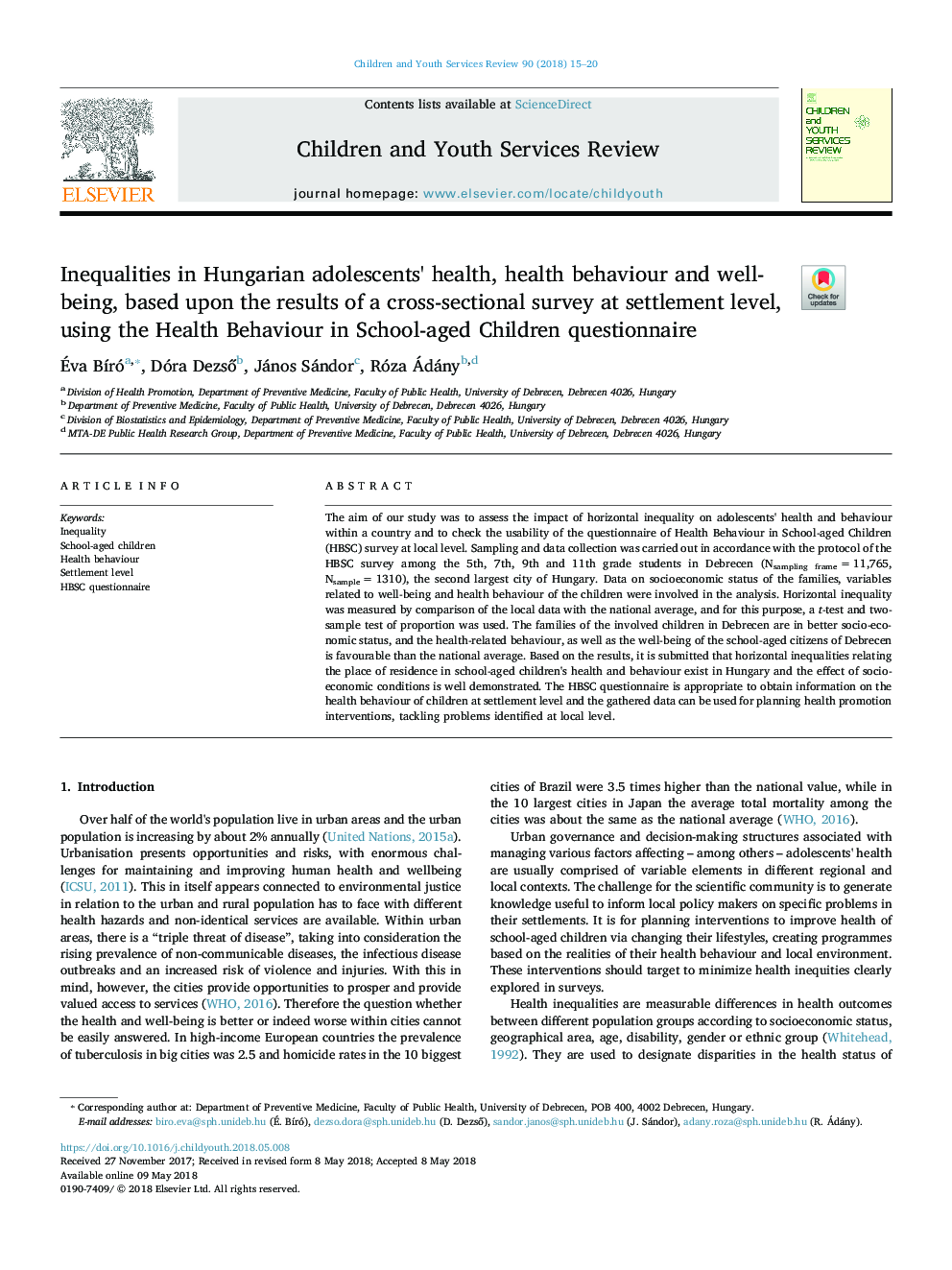| Article ID | Journal | Published Year | Pages | File Type |
|---|---|---|---|---|
| 6832982 | Children and Youth Services Review | 2018 | 6 Pages |
Abstract
The aim of our study was to assess the impact of horizontal inequality on adolescents' health and behaviour within a country and to check the usability of the questionnaire of Health Behaviour in School-aged Children (HBSC) survey at local level. Sampling and data collection was carried out in accordance with the protocol of the HBSC survey among the 5th, 7th, 9th and 11th grade students in Debrecen (Nsampling frameâ¯=â¯11,765, Nsampleâ¯=â¯1310), the second largest city of Hungary. Data on socioeconomic status of the families, variables related to well-being and health behaviour of the children were involved in the analysis. Horizontal inequality was measured by comparison of the local data with the national average, and for this purpose, a t-test and two-sample test of proportion was used. The families of the involved children in Debrecen are in better socio-economic status, and the health-related behaviour, as well as the well-being of the school-aged citizens of Debrecen is favourable than the national average. Based on the results, it is submitted that horizontal inequalities relating the place of residence in school-aged children's health and behaviour exist in Hungary and the effect of socio-economic conditions is well demonstrated. The HBSC questionnaire is appropriate to obtain information on the health behaviour of children at settlement level and the gathered data can be used for planning health promotion interventions, tackling problems identified at local level.
Related Topics
Health Sciences
Medicine and Dentistry
Perinatology, Pediatrics and Child Health
Authors
Ãva BÃró, Dóra DezsÅ, János Sándor, Róza Ádány,
